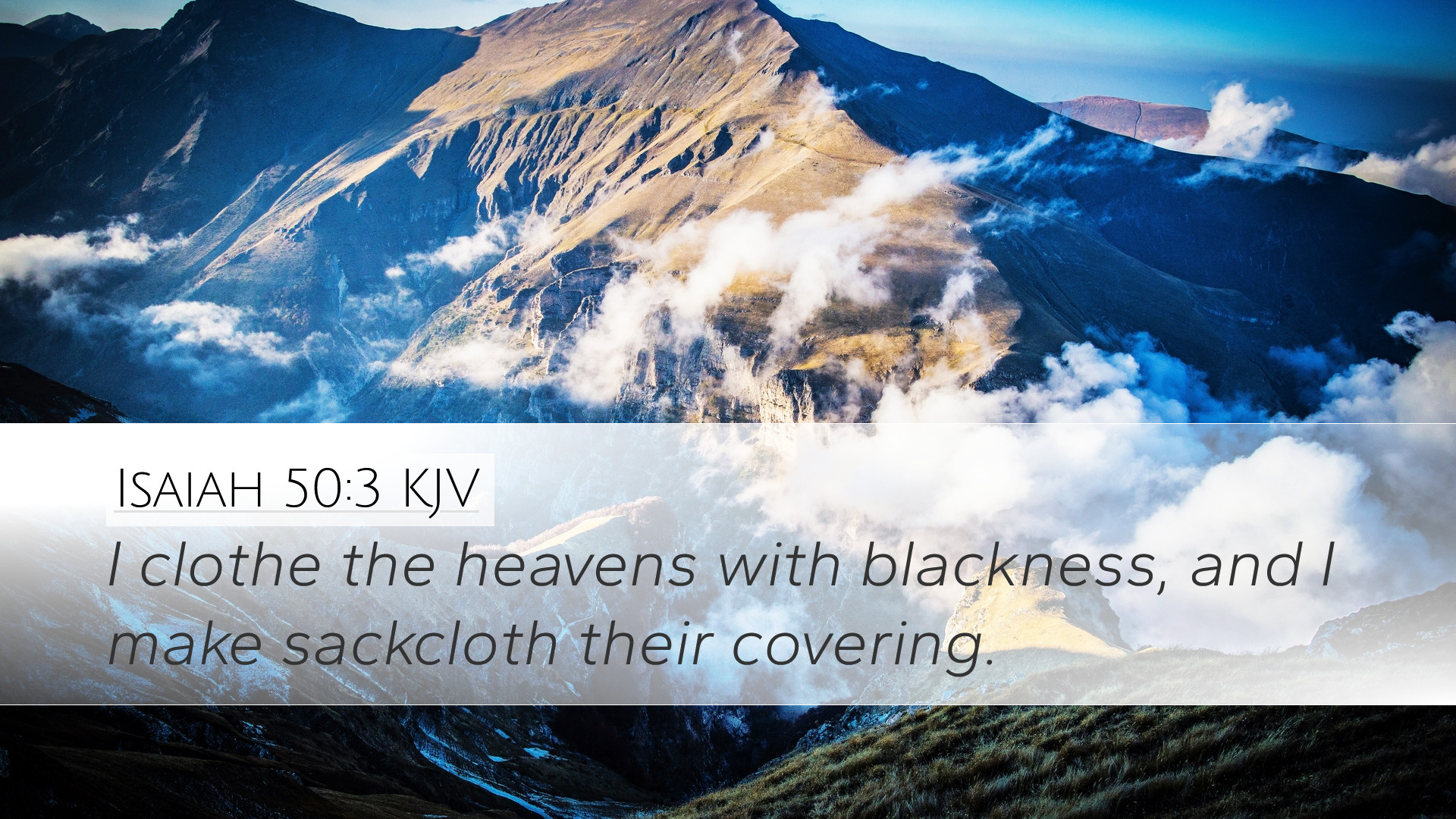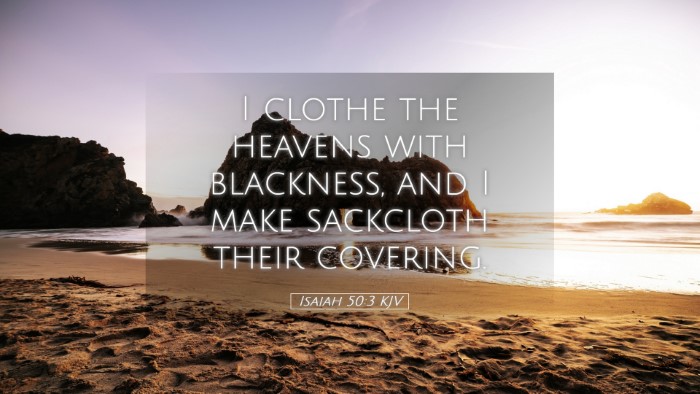Commentary on Isaiah 50:3
Isaiah 50:3 states:
"I clothe the heavens with blackness, and I make sackcloth their covering."
Introduction
This verse is a part of a broader narrative in the book of Isaiah, often understood within the context of prophetic symbolism and themes of judgment and hope. The prophet Isaiah is known for his vivid imagery and deep theological insights, offering profound reflections on God's character and His relationship with His people.
Contextual Analysis
To fully appreciate Isaiah 50:3, it is essential to consider its surrounding verses and the socio-political context of Israel at the time. The chapter presents a picture of God's sovereignty and the response of His people to divine discipline.
Divine Sovereignty
The imagery of "clothing the heavens with blackness" and "making sackcloth their covering" indicates God's control over creation and His response to human sin.
- Matthew Henry highlights that this verse metaphorically illustrates God's judgment. The blackness signifies despair and the absence of light, suggesting that the heavens may reflect the moral state of the people.
- Albert Barnes interprets the sackcloth as an emblem of mourning, indicating that God’s judgment brings forth a somber reality to His creation, symbolizing an invitation to repentance.
- Adam Clarke echoes this sentiment, emphasizing that the darkness of the heavens represents a divine reaction to the wickedness of humanity and calls for reflection and self-examination.
Symbolism of Darkness
The use of darkness in biblical literature often symbolizes judgment, absence of divine favor, and lamentation. Here, Isaiah depicts a God who is not indifferent to human actions.
- Spiritual Connotation: The blackness of the heavens reflects spiritual blindness and lostness within the people. It serves as a wake-up call for Israel to recognize their shortcomings.
- Apocalyptic Imagery: This theme echoes throughout the prophetic books, where celestial phenomena are used to signify crucial moments of divine intervention in human history.
Theological Reflections
In examining the theological implications of Isaiah 50:3, several key themes arise:
- God's Authority over Creation: The verse affirms God's ultimate authority as the Creator who can alter the very fabric of the universe in response to the moral failings of humanity.
- Call to Repentance: The darkening of the heavens serves not just as a form of judgment but as a crucial moment for repentance and renewal among His people.
- Hope amidst Judgment: While the immediate context may be one of despair, the overarching narrative of Isaiah remains one of hope and restoration, highlighting the path forward through God's grace.
Application for Contemporary Readers
For pastors, theologians, and students of Scripture, Isaiah 50:3 presents an opportunity to meditate on the themes of divine justice, human sin, and the necessity of repentance.
- Reflect on God's Sovereignty: Believers are called to recognize God’s hand in the events of their lives and the world at large, understanding that times of darkness may be a call to fellowship and alignment with His will.
- Encouragement to Preach Repentance: Pastors are reminded to emphasize the importance of returning to God, encouraging congregations to seek His light amidst their struggles.
- Understanding Signs of the Times: The metaphor of darkness can serve as a lens through which believers view contemporary moral and spiritual crises, calling for prayer and action amidst societal challenges.
Conclusion
Isaiah 50:3 is more than just a poetic expression of despair; it is a profound theological statement about God's interaction with creation in light of human sin. The insights from various public domain commentaries highlight the importance of understanding this verse within its broader narrative, urging believers to see God's call toward repentance and hope for restoration.
As students of Scripture reflect on these insights, may they find both challenge and encouragement, realizing that, even in times of darkness, God’s grace abounds and His light can break through.


